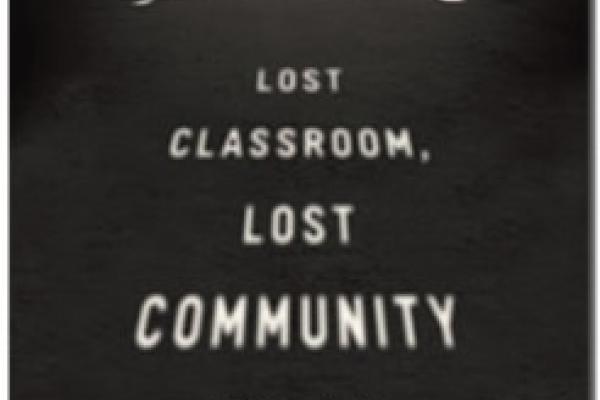What happens to a community when a Roman Catholic school closes its doors?
That’s the question Nicole Stelle Garnett and Margaret F. Brinig, two Notre Dame law professors, pondered as they studied closures in Chicago, Philadelphia, and Los Angeles.
There were 7,000 Catholic schools in the U.S. in 2010, down from 13,000 in 1960, according to the National Catholic Education Association. The decline, rooted in the migration of parishioners to the suburbs and the secularization of Catholic culture, has been dubbed the “closure crisis” within the church.
Religion News Service asked Garnett about what she and Brinig found in their investigation, which resulted in their new book: Lost Classroom, Lost Community: Catholic Schools’ Importance in Urban America.
The interview has been edited for length and clarity.
Q: Why did you write this book?
A: I was at a conference several years ago on the inner-city kids and faith-based schools and how these great educational institutions are closing and how we can keep them open. But during the break, a lot of the community organizers were saying something a little different: when the school closes, the neighborhood really suffers.
My parents lived through different kind of school closings — of rural public schools in Kansas. They would say the same thing — that when the school closes, it was the end of the community. I was curious. I teach property law and I’ve written a lot about what makes urban neighborhoods work. This question about schools as community institutions is really interesting to me.
Q: But how do you know that your results apply uniquely to Catholic schools, rather than schools in general?
A: We don’t. Schools are good community institutions. They bring people together to make children into productive, happy, healthy adults. We didn’t try to compare the effect of public school closures — we just didn’t have the data.
What we did do was test the effects of an open charter school versus an open Catholic school, and we found they didn’t work quite the same way. An open Catholic school was strongly correlated — controlling for demographics — with much lower crime. An open charter school wasn’t.
Q: Why might this be?
A: One of our thoughts on why Catholic schools are really great community institutions ties into the literature on why they’re great educational institutions: There’s a lot of trust and high expectations among the principals, teachers, kids and parents. There’s a spillover into the community.
And sometimes these schools are the last functioning institutions left in poor neighborhoods. The Catholic Church, by investing in a poor South Side African-American neighborhood in Chicago, is making the statement that we believe in you, and we know success is possible here. Maybe when they leave, it sends the opposite message.
Q: The last chapter of your book is called “Imagining Cities without Catholic Schools.” What do you imagine?
A: We imagine families who might leave cities in order to seek out a better education for their kids. And cities need families. Cities need families for stability, for health, for social capital. Our urban leaders don’t want to imagine their cities without Catholic schools.
Q: You make the point that inner-city Catholic schools are educating many students who are not Catholic. What does that say about Catholic education in the U.S. today?
A: Former Washington, D.C., Cardinal James Hickey used to say, “We’re not educating them because they’re Catholic; we’re educating them because we’re Catholic.” It says a very good thing about the Catholic Church that it is willing to invest in the education of these kids.
Q: Is this book an argument for public vouchers for private schools?
A: We didn’t set out to write a book that’s an argument for vouchers. This is an empirical social science study. It is another piece of data which certainly would seem to support public funding mechanisms that would help these schools attract poor kids who would like to go there.
Q: Why does the book spend little time on the church’s sex abuse crisis?
A: We didn’t set out to provide a universal explanation for the decline in Catholic schools. The abuse crisis I’m sure has decreased a lot of faith in Catholic institutions and that’s a very sad thing for me as a Catholic. It turns out that if a priest in the parish is accused of abuse, the Catholic school is 10 times more likely to close. But if the priest leaves for other reasons — he gets sick, dies, marries — the school is also more likely to close.
Q: Are you a Catholic school graduate?
A: I went to public school in Kansas. Three of my four children are in Catholic schools, and one is not in school yet.
Lauren Markoe writes for Religion News Service.
Got something to say about what you're reading? We value your feedback!
